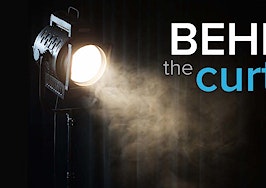- Don't take listing photos yourself or let a friend of the family do it -- unless he or she legit knows what to do.
- It's completely unnecessary to capture every inch of a home photographically. Stick to one (maybe two) angles in a room.
- Don't over-photoshop. Keep it simple.
When it comes to marketing a property, quality listing photos are what I like to call table stakes. You just can’t get in the game without them.
And notice I wrote “quality” listing photos. Bad listing photos are no help at all — unless you want your listing to be the next entry in an article or blog like this one. To help you — and your sellers — avoid such an unpleasant fate, here are 12 ways not to do your listing photos:

Stock-Asso / Shutterstock.com
1. Dive into DIY
DIYing leaves money on the table and prolongs time on market, according to this Redfin study. It found that homes with professional listing photos sell up to three weeks faster and for up to $11,200 more than homes with DIY listing photos.
[Tweet “DIYing leaves money on the table and prolongs time on market.”]
2. Hire your brother-in-law
That is, unless your brother-in-law is an experienced listing photographer. Instead of writing a check to the first person who waves a digital camera at you, ask your broker or top-selling colleagues for recommendations.
3. Micromanage the photographer
Theoretically, you hire photographers because they know what they’re doing and will save you time. Following them around the house and dictating camera settings and angles defeats the purpose.
4. Shrug basic staging rules
Photographing an unstaged house is like showing up for a portrait session in your sweats. At least have the sellers pack away the clutter. If possible, pay to professionally stage the home.
[Tweet “Photographing an unstaged house is like showing up for a portrait session in your sweats. “]

Gemenacom / Shutterstock.com
5. Fail to sweat the small stuff
The reflection of your arm in the bathroom mirror, the raised toilet seat, the banana peel hanging from the chandelier (yes, really) — if you’re DIYing, nothing screams amateur listing photos more than sloppy attention to detail.
6. Give pets the run of the house
Free-roaming pets can be a hindrance at best and a safety risk at worst. Plus, pet odors and messes are a major turnoff for buyers. Don’t give buyers an excuse not to come — keep the pets and pet paraphernalia out of the listing photos.
7. Photograph every single inch of the home
Excessive listing photos fatigue buyers. One or two angles of each room should be sufficient. And trust me — you don’t need a detail shot of that 1980s light fixture.
[Tweet “Excessive listing photos fatigue buyers. One or two angles of each room should do it.”]
8. Use auto-everything
In almost every home, the amount and quality of lighting (and the size of the space) varies widely from room to room. If you’re DIYing, your listing photos will suffer unless you understand how to adjust focus, shutter speed, ISO and aperture to account for those differences.
9. Photoshop the heck out of them
There’s a point at which photoshopping ceases to enhance and begins to detract. For example, these photos have passed that point. If you’re going to edit your own listing photos, know when to stop.
10. Write long captions
A picture is worth a thousand words, right? So why are you writing a thousand more to describe it? If you must write captions for your listing photos, limit them to one short sentence apiece.
[Tweet “A picture is worth a thousand words. So why are you writing a thousand more to describe it?”]
11. Hoard the photos
Today’s homebuyers are online, and they like data. So don’t just bury your listing photos deep in the MLS — share them on social media, your website and your email marketing.
12. Share them with everyone you know
Don’t be so eager with your sharing that you cross the line into spamming. Target your posts and emails to buyers and agents, and mix in other content to keep folks engaged.
Now that you know what you shouldn’t do, go forth, and create some spectacular listing photos.
Kathryn Royster is the marketing director for HouseLens, Inc. You can follow Kathryn on Twitter @kathrynroyster. HouseLens is on Facebook.




